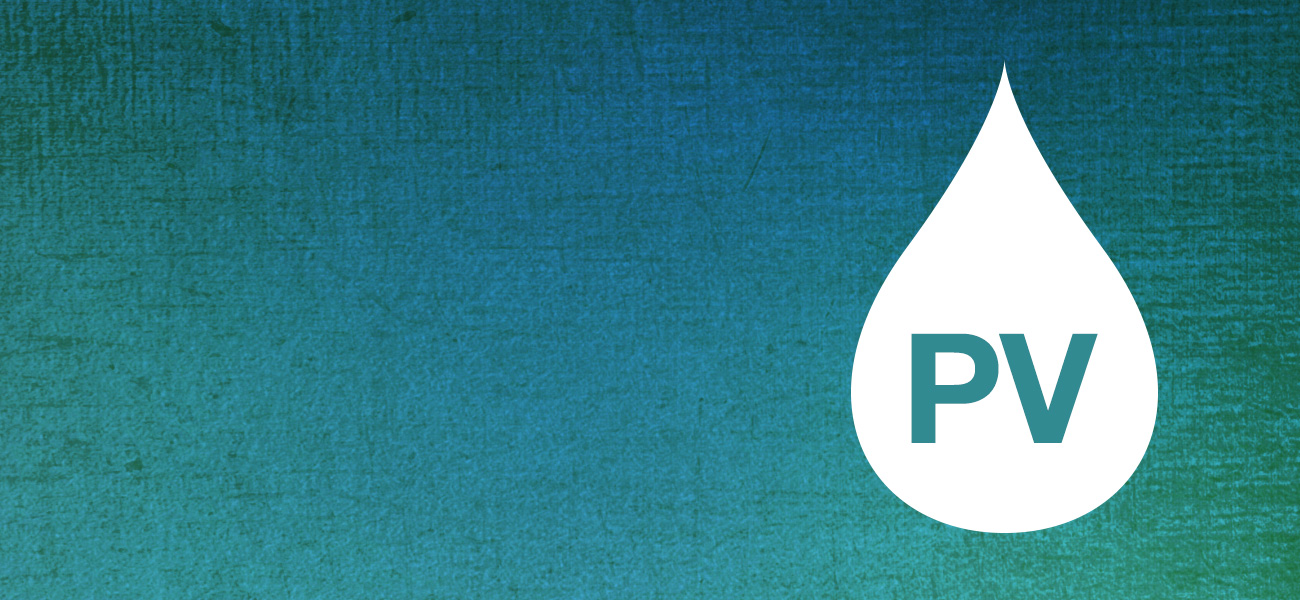In medicine, a complication is a medical problem that occurs during the course of a disease or after a procedure or treatment. Possible complications of PV include:
- Thrombus (blood clot). The extra blood cells in people with PV may cause the blood to be thicker than normal. As a result, harmful blood clots may form and block the flow of blood through arteries and veins. Blood clots that form in an artery can lead to a heart attack or a stroke. They can also form in the deep veins of the arms or legs, a condition called “deep vein thrombosis.” If a blood clot from a deep vein breaks loose and travels to the lungs, it can become lodged in the lungs, blocking blood flow, which can be life-threatening. This is called a “pulmonary embolism.”
- Bleeding. Patients with PV may develop acquired von Willebrand disease, a clotting disorder that puts them at high risk of bleeding.
- Enlarged spleen. The spleen is an organ located on the left side of the upper abdomen, near the stomach and below the rib cage. It filters the blood, stores blood cells and destroys old blood cells. In some people with PV, the spleen may become abnormally enlarged because it is working harder to manage the increased number of blood cells. An enlarged spleen can cause discomfort or pain in the abdomen. When the spleen pushes up against the stomach, it may also cause a feeling of being full along with a decreased appetite.
- Portal hypertension. Normally, blood flow from the spleen enters the liver through a large blood vessel called the portal vein. When the spleen is enlarged, increased blood flow through the portal vein can lead to high blood pressure in the vein. This can force excess blood into smaller veins in the stomach and esophagus, potentially causing the veins to rupture and bleed. Portal hypertension may also be caused by a blood clot that develops in the portal vein, which may obstruct the blood flow through it.
- Extramedullary hematopoiesis. When the bone marrow is no longer able to make sufficient blood cells, other organs in the body such as the spleen may begin to produce blood cells. This often causes the spleen and liver to become enlarged. Extramedullary hematopoiesis may also lead to the creation of clumps or tumors of developing blood cells in other areas of the body, which may cause bleeding in the gastrointestinal (GI) system, coughing or spitting up blood, compression of the spinal cord, or seizures.
- Other blood diseases. In some cases, PV may progress to other related blood diseases including myelofibrosis (MF), acute myeloid leukemia (AML) and, less commonly, myelodysplastic syndrome (MDS).
Related Links
- Download or order The Leukemia & Lymphoma Society’s free booklets:
